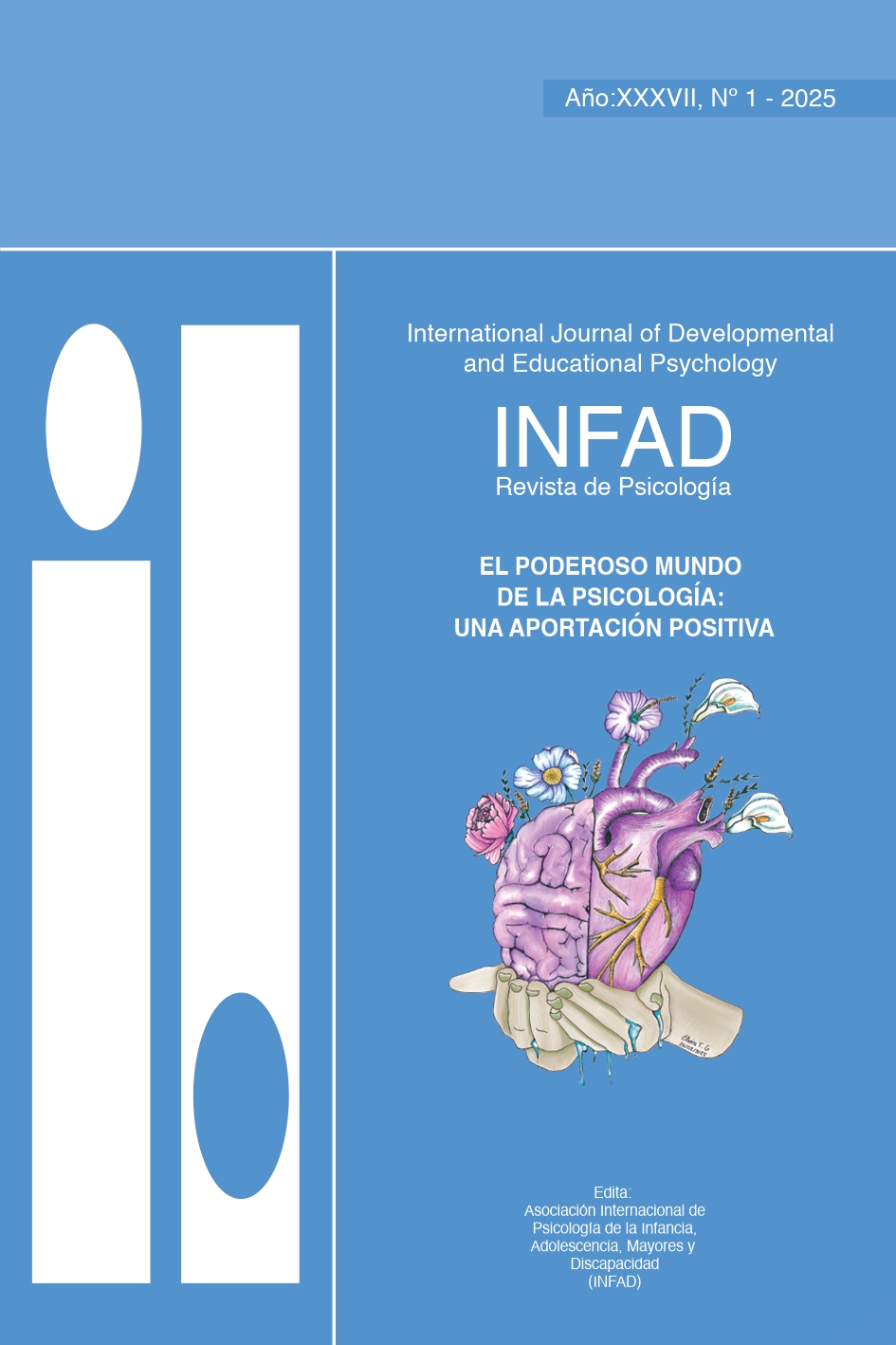Psychological intervention of students with high abilities in a public university
Main Article Content
Abstract
At the Autonomous University of the State of Hidalgo (UAEH), the Psychological Care Service is provided to increase passing, retention, and completion rates in Higher Education. Its general objective is to respond to the psycho-emotional needs of students throughout their academic career with timely follow-up. One of its goals is to promote coordinated actions focused on disadvantaged students to prevent risks. This begins with the application of a Context Diagnosis questionnaire to applicants that identifies risk factors and the type of individual attention they require. This communication presents the case of gifted students who, due to their condition, may experience personal, psychological, and educational problems that affect their admission, retention, and graduation. Another action to address these different needs is the training of psychologists through the Seminar on Identification, Psychopedagogical Evaluation, and Educational Intervention for Gifted Students, with the goal of providing them with basic tools for the process. This study presents a mixed-method approach, presenting the results of this seminar delivered to 60 psychologists from different UAEH institutes and higher education schools. The results obtained from a diagnostic test, training, and a posttest are analyzed, presented in four categories: a) False beliefs and the reality of general giftedness; b) False beliefs and the reality of giftedness in academic competence; c) False beliefs and the reality of giftedness in social competence and emotional characteristics; d) False beliefs and the reality of giftedness in intervention (Reche, 2025; Rodríguez, 2001). Among the findings and conclusions obtained through the seminar, the psychologists were able to analyze and discuss the initial beliefs and the different realities.
Article Details
Section

This work is licensed under a Creative Commons Attribution-NonCommercial-NoDerivatives 4.0 International License.
Attribution — You must give appropriate credit, provide a link to the license, and indicate if changes were made. You may do so in any reasonable manner, but not in any way that suggests the licensor endorses you or your use.
NonCommercial — You may not use the material for commercial purposes.
NoDerivatives — If you remix, transform, or build upon the material, you may not distribute the modified material.

This work is licensed under a Creative Commons Attribution-NonCommercial-NoDerivatives 4.0 International License
How to Cite
References
Acereda, A. (2000). Niños superdotados . Madrid: Pirámide.
Álvarez M. A. (2015). Alumnos con altas capacidades: detección y respuesta educativa. Universidad España. https://www.redalyc.org/journal/5746/574660897004/html/
Badoz, L. A. (2008). La intervención psicológica: características y modelos. Universidad de Barcelona.
Barrera, Á., Durán, R., González, J. y Reina C.L. (2008). Manual de atención al alumnado con necesidades específicas de apoyo educativo por presentar altas capacidades intelectuales. http://www.juntadeandalucia.es/export/drupaljda/Manual.pdf
Bisquerra, A. R. (2006). Modelos de orientación e intervención psicopedagógica . España: Wolters Kluwer Educación.
Garnica, M. (2013). ¿Cómo reconocer a un niño superdotado? Barcelona: Cúpula.
Gómez, M. P., y Conejeros, L. (2014). Gifted students readiness for college: Factors that influence students performance on a college entrance test . Gifted Education International, 30(3), 212–227. https://doi.org/10.1177/0261429413486573
INFAD. (2014). Los programas de enriquecimiento: desarrollo integral de las altas capacidades. (2014). Revista INFAD De Psicología. International Journal of Developmental and Educational Psychology., 6 (1), 27-32. https://doi.org/10.17060/ijodaep.2014.n1.v6.714
INFAD. (2019). Intervención en las habilidades sociales de las altas capacidades. Un estudio de caso . Revista INFAD De Psicología. International Journal of Developmental and Educational Psychology., 5(1), 401-410. https://doi.org/10.17060/ijodaep.2019.n1.v5.1618
INFAD. (2019). Las altas capacidades. Estudio de caso. Revista INFAD De Psicología. International Journal of Developmental and Educational Psychology., 1 (1), 233-240. https://doi.org/10.17060/ijodaep.2019.n1.v1.1414
INFAD. (2021). Actitudes y creencias de los docentes hacia el alumnado con altas capacidades intelectuales y la importancia de la formación del profesorado en este ámbito. Revista INFAD De Psicología. International Journal of Developmental and Educational Psychology., 1 (2), 489-502. https://doi.org/10.17060/ijodaep.2021.n2.v1.2203
Jung, Y. Y. (2020). The career development of gifted students . En, Athanasou, J.A., Perera, H.N. (Eds.). International Handbook of Career Guidance (pp. 325-342). Springer. https://doi. org/10.1007/978-3-030-25153-6_15
Legler, M. (2022). Systematic literature review: Professional situation of gifted adults . Frontiers in Psychology, 13, 1-23. https://doi.org/10.3389/fpsyg.2022.736487
López, J.C. (2012). Didáctica para alumnos con altas capacidades . Madrid:
Síntesis, S.A. Ordaz V, Acle T (2025). Alumnado universitario con aptitudes sobresalientes: Características y propuestas de atención para el docente . UNAM, FES Zaragoza.
Reche, M. (2025). Altas capacidades intelectuales. Conceptualización, Identificación, evaluación y respuesta educativa. Región de Murcia. Consejería de Educación y Cultura. https://www.carm.es/edu/pub/19638_2019/files/altas-capacidades-intelectuales.pdf
Reynen, K., Round, P., y Subban, P. (2023). Gifted, disadvantaged, unseen: A scoping study of giftedness, disadvantage and cultural difference in young adult learners . Social Sciences & Humanities Open, 7(1), 1-11. https://doi.org/10.1016/j.ssaho.2023.100477
Rodríguez, R.I. (2001). Mitos y realidades sobre la superdotación y el talento. Revista Internacional de apoyo a la inclusión, logopedia, sociedad y multiculturalidad, vol. 2, núm. 1, pp. 39-54, 2016
UAEH. (2025). Programa Institucional de Atención Psicológica. Universidad Autónoma del Estado de Hidalgo. https://www.uaeh.edu.mx/tutorias/programas/atencion-psicologica/programa.html
Zúñiga, M. (2025). Altas capacidades intelectuales: conceptualización, identificación, evaluación y respuesta educativa, evaluación diagnóstica. https://docs.google.com/forms/d/12ccNveKSk8RiIduuR6MW19R9nKZdxE2cvFGSNekBj_s/edit
Zúñiga, M. (2025). Altas capacidades intelectuales: conceptualización, identificación, evaluación y respuesta educativa, evaluación final. https://docs.google.com/forms/d/1zzQORt3aG2WStzpMieP_h2r5A_tO1n5VR688nTdNSzw/edit

